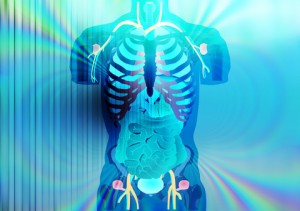Understand Inhalant Abuse
Adult women who want to get high can open up the refrigerator and swill down beer, pop open the medicine cabinet and take a few pills, or even load up a pipe with marijuana and light up to take a puff. Each of these activities can be effective, but they’re also quite public, leaving behind nasty evidence that a woman must either hide or explain away. Women who want to be slightly more covert about their addictive habits may have an ideal solution hiding in the cupboards, drawers and shelves of their homes: inhalants. These common products can produce a significant amount of intoxication when they’re sniffed, and women who abuse these products may be able to mask their disorders for years, simply because they can incorporate their drug use into the activities they might normally undertake, and no one might be the wiser.
Inhalant Products
The National Inhalant Prevention Coalition reports that there are more than 1,000 products that could be used as inhalants by women who want to get high, including:
- Correction fluid
- Felt-tip markers
- Spray paint
- Cooking spray
- Gasoline
- Paint thinner
- Leather cleaner
Some women use special types of inhalants known as nitrates. These inhalants are typically sold by drug dealers, and users are told that the drugs could enhance their sexual function. Unlike other types of inhalants, which are typically considered legal, this type of product has been prohibited by the Consumer Products Safety Commission. Even so, the National Institute on Drug Abuse (NIDA) reports that the substances can sometimes be found in tiny bottles that are misleadingly labeled as “liquid aroma” or “room odorizer.”
Short-Lived Responses
 Inhalant products vaporize when they’re exposed to air, and users of inhalants capture those gasses in a variety of ways. Some users just sniff the products as soon as the lid has been removed. Others soak a cloth with the product, and hold that damp cloth up to their mouths or noses. Still others place the product inside of a bag and breathe deeply out of that bag.
Inhalant products vaporize when they’re exposed to air, and users of inhalants capture those gasses in a variety of ways. Some users just sniff the products as soon as the lid has been removed. Others soak a cloth with the product, and hold that damp cloth up to their mouths or noses. Still others place the product inside of a bag and breathe deeply out of that bag.
When the gases move through the mouth and nose and into the body’s tissues, a series of very complicated chemical reactions begins, and the user typically experiences sensations similar to those felt by people who drink alcohol. They may feel silly and lightheaded, for example, and they may struggle to keep control over their extremities. The effects tend to fade within moments, however, so people who abuse inhalants may keep their products close at hand, so they can take repeated hits when they feel sobriety taking hold.
Users often experience a headache in the moments that follow a session of inhalant abuse, but some people have such a serious reaction to inhalants that they die on the spot. These products can, at times, cause the heart to speed up and beat in a galloping, out-of-control manner and it can be difficult to resolve that problem without medical attention. Some people slip right away as they abuse their drugs, never knowing that their deaths were totally preventable.
Long-Lasting Damage
 Some forms of inhalants cause serious and long-lasting problems in the people who use them. For example, the NIDA reports that nitrite inhalants have been linked to a dip in immune system function, meaning that people who abuse these drugs might be privy to all sorts of infections they might have easily beaten back if they’d not taken drugs. Similarly, some forms of nitrites have been associated with tumor growth in animal studies, the NIDA reports. Women who abuse these substances could be catastrophically damaging their health, and they may not even notice the damage as it progresses.
Some forms of inhalants cause serious and long-lasting problems in the people who use them. For example, the NIDA reports that nitrite inhalants have been linked to a dip in immune system function, meaning that people who abuse these drugs might be privy to all sorts of infections they might have easily beaten back if they’d not taken drugs. Similarly, some forms of nitrites have been associated with tumor growth in animal studies, the NIDA reports. Women who abuse these substances could be catastrophically damaging their health, and they may not even notice the damage as it progresses.
Other inhalants can wear away the sheath that protects nerve endings throughout the body. Without this sheath, information can jump from one cell to another in a completely random fashion, leading to difficulties with mental processing and muscle control. Some of these changes might disappear if the person stops abusing inhalants, but other damage might persist, no matter what the person does in the future.
Inhalants may also have the ability to cross the placenta between a pregnant mother and her newborn baby.
According to an article published in the journal Obstetrics and Gynecology Clinics of North America, there have been more than 100 reported cases of babies born to women who abused inhalants, and many of these babies had serious health problems, including:
- Low birth weight
- Physical abnormalities
- Mental deficits
- Lack of motor skills
- Difficulties with speech
Problems like this are almost certain to persist throughout the life of a child, and women who allow this abuse to happen might feel intense guilt as a result.
What to Do
Inhaling smelly products day in and day out, while dealing with very serious health problems due to that abuse, may not sound appealing. In fact, people who don’t abuse these drugs may believe that addicted people can just stop the abuse at any time, as long as they had the willpower to do so. Unfortunately, many people who abuse these drugs just can’t stop on their own. The drugs are reinforcing to the cells of the brain, filling those cells with pleasurable sensation, and in time, those brain cells may develop a preference for drugs and a need for them. Cravings may take hold, deep within the cells of the brain, and that calling for drugs may be difficult or impossible for an addicted person to ignore. Just quitting isn’t an option for people like this, as they have a physical and mental need for the drugs they once took on a recreational basis.
Therapy programs can help to break the cycle. Here, people can learn more about how addiction develops, and they can develop a comprehensive plan they can put into place when they’re tempted to abuse drugs. People with these addictions may always need to be on guard for relapse warning signs, but with therapy, they can learn to keep their destructive impulses in check.
Convincing someone to enter a program like this isn’t always easy, but we can help. At The Orchid, we can help you find a qualified interventionist who can help you discuss the addiction in a helpful and loving way, and we can smooth the path to enrollment by asking you questions about the addiction and working with your insurance company to ensure that the care is paid for with no hassle at all. Please call us to get the process started.
